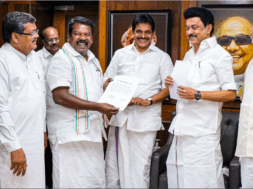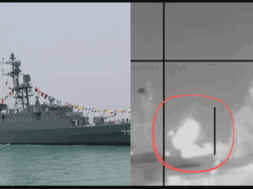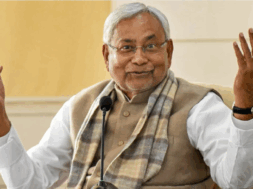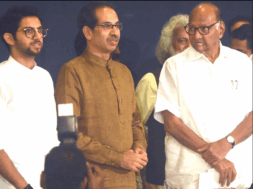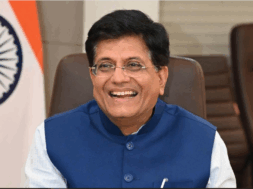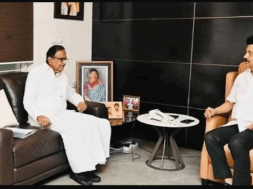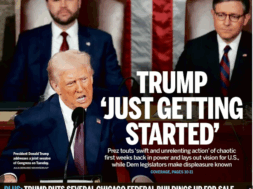
Roving Periscope: Targeting China, Dr. Jaishankar says India and Japan to “re-globalize” world
Virendra Pandit
New Delhi: External Affairs Minister S. Jaishankar on Thursday said the turbulence in India’s relationship with China amid the border standoff is a cause of concern as Beijing doesn’t observe written agreements with its neighbors, which raises a question on its intentions.
He also said India and Japan are natural partners in a world headed towards “re-globalization,” asserting that the two nations also share basic affinities, being democracies and market economies.
Addressing the Raisina Roundtable, organized by India’s Observer Research Foundation (ORF) in Tokyo, he said, “There is the reality of very big power shifts in the Indo-Pacific Region. When there are shifts in the power capabilities and influence and ambitions, then there are all accompanying and strategic consequences.”
Dr. Jaishankar said although countries intend to keep relationships stable despite changing dynamics, that has not been the case with China.
“It’s not an issue whether you like it or not like it. There is a reality out there and you have to deal with that. Ideally, we would assume ‘Everybody would say okay, things are changing but let’s keep it as stable as we can’. Unfortunately, that’s not what we have seen in the last decade.”
“Our own experience in the case of China…is between 1975 and 2020, which is 45 years, there was no bloodshed on the border. In 2020, it changed. We disagreed on many things. When a country doesn’t observe written agreements with a neighbor. I think you have cause for concern here. It raises a question mark about the stability of the relationship and frankly, about the intentions.”
Dr. Jaishankar praised India’s growing ties with other countries citing the Free Trade Agreements (FTAs) with Australia and UAE, adding that the FDA negotiations are in advanced stage with the UK and the European Union as well.
Asserting that the Indian economy is ‘externalizing,’ the EAM said that India’s trade levels, exports, and FDIs are going up.
About India’s ties with the Middle East, he said New Delhi has maintained its relations despite navigating the divides and frictions in the region.
“Today we have very strong relations with all the Gulf states, and beyond as well, with Egypt and certainly with Israel. Within the region, we have managed to navigate the challenges, divides, and frictions in the region.
“But, if I were to look at it globally today, India, which till the early 1990s was very reliant on the Soviet world and then broadened it out, built its relations in the East, with ASEAN, and north-east Asia…In the last decade, we have invested a lot of efforts in the Middle East and Europe, and the India-US relationship has matured,” he said.
On the Russia-Ukraine conflict, Dr. Jaishankar said the fact that Russia’s ties with the Western world have broken down, presents an opportunity for Asian countries, including India, as Moscow is looking for “multiple options.”
“If you look at the last two years, because of the Ukraine conflict, the Russia-Western relationship has broken down. Economically, it means a lot of access it had to the Western world is not there…you have the prospect of Russia turning more and more to Asia. We are already seeing a flow of Russian trade, investments, resources, and collaborations towards Asian destinations….it has very interesting implications for us in Asia because, like other big powers, Russia will want to have multiple options.”
Dr. Jaishankar is on a visit to Japan from March 6 to 8 for the 16th India-Japan Foreign Minister’s Strategic Dialogue with his Japanese counterpart, Yoko Kamikawa.
The world, he said, is heading for re-globalization with the building of resilient and reliable supply chains and trusted and transparent digital transactions. The top 20 or 30 nations today are not what they were two decades ago.
Dr. Jaishankar said that India and Japan’s commitment to a free and open Indo-Pacific is being taken forward by the QUAD (Quadrilateral Security Dialogue) each year. “The value of this contribution is also being increasingly appreciated across the world,” he said.
The QUAD is a four-member strategic security dialogue between the US, Australia, India, and Japan.
Underlining that the comfort India and Japan have built up is a foundation to think more ambitiously as the two nations look at the opportunities and challenges of the future. “The progress in India in the last decade promises even more for a partnership,” he said.
The Raisina Roundtable is a key step towards enhancing Track Two exchanges between India and Japan, the Ministry of External Affairs in New Delhi said in a statement ahead of Dr. Jaishankar’s Japan visit.
His visit and meetings in Tokyo will provide strategic guidance to India’s functional cooperation in various areas, impart further momentum to bilateral exchanges, and set the agenda for future cooperation, it added.


